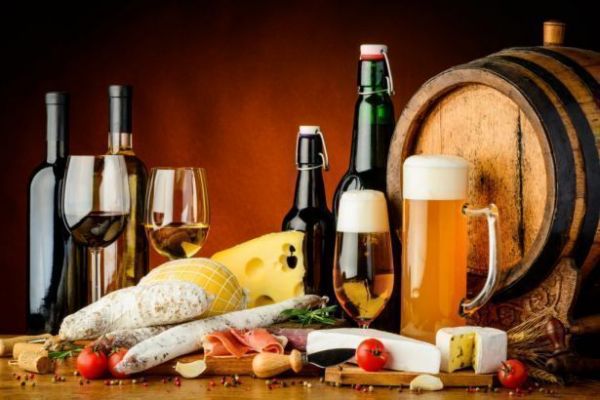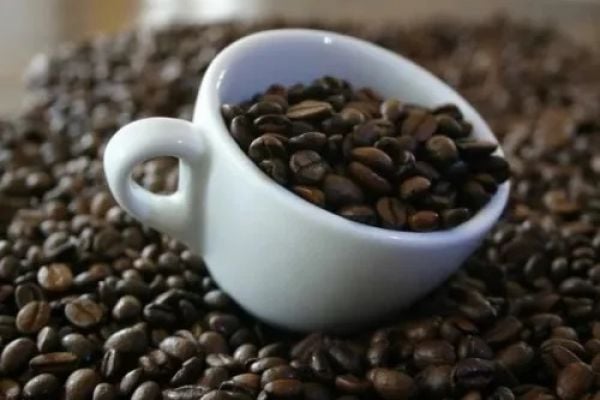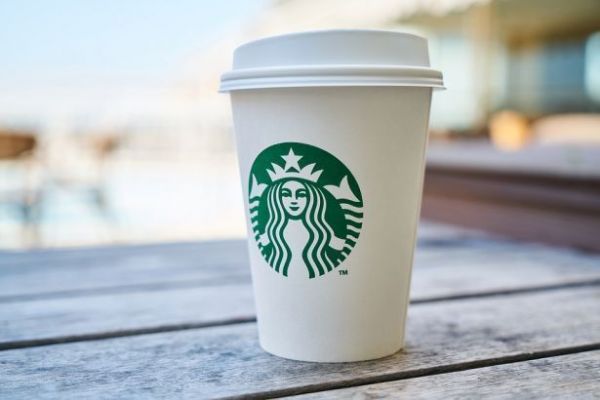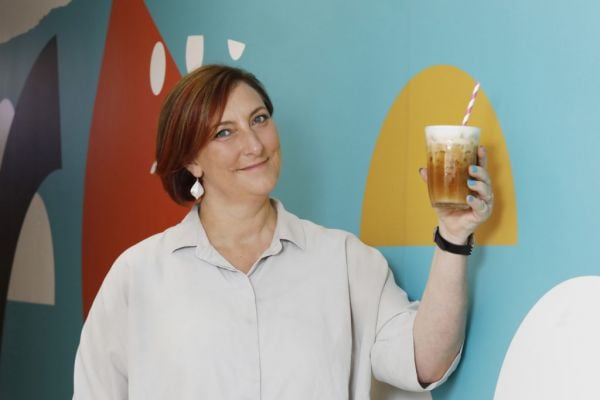Hospitality Ireland presents a round-up of global hospitality venue, food and drinks news.
Global Hotel Cancellations Rise Ahead Of Holidays Due To Omicron - Trivago
Concerns over the Omicron coronavirus variant and fresh travel restrictions have led to a spike in hotel booking cancellations globally, online hotel search firm Trivago said on Tuesday December 14, threatening to upend a fragile recovery in tourism.
Cancellation rates increased to 35% since November and holiday travel planning was down 10%, the company said, adding that most travellers were choosing domestic destinations.
The company did not say what the cancellation rates were prior to November.
The Omicron outbreak, first reported in southern Africa, has led to a flurry of new testing rules and border closings, raising concerns ahead of the important Christmas travel season.
Multiple events ranging from sports and trade shows to corporate parties have been cancelled, also leading to a slowdown in hotel bookings.
Trivago said overall activity around holiday travel planning has slowed, growing by just 4% since the variant was discovered. By comparison, Christmas travel increased by 34.7% in the same one-to-two-week period in 2019.
Last month, the company said it saw an increase of 35% in search traffic in the week leading up to Thanksgiving.
U.S. travelers are sticking with Las Vegas and New York as top holiday destinations, the company said.
"Much like 2020, domestic travel is the preferred option as consumers look to reunite with friends and family," Trivago said.
United Airlines said on Tuesday December 14 it expected around eight million people to fly during the year-end holiday season, which the company added was higher than the number of people flying during the Thanksgiving period.
The airline had previously warned that the Omicron variant was a threat to translantic travel.
International flight searches from the United States were down between 35% and 39% in the first week of December, according to rival Booking Holdings Inc's travel website Kayak.
They were down about 25% just before Thanksgiving, a day before the World Health Organization named the new COVID-19 variant and said it may spread more quickly than other forms, according to Kayak.
Fears over the variant have grown after British Prime Minister Boris Johnson warned of a "tidal wave" of new cases, with the country reporting the first publicly confirmed death in the world due to Omicron on Monday December 13.
KFC Cuts Queues To Keep Japan's Fried Chicken Christmas Custom Alive
A long queue of patrons running out the door of nearly every KFC has been a perennial Christmas sight in Japan but COVID-19 social distancing rules that discourage lines and place strict conditions for dining-in are threatening the custom.
This year, KFC Holdings Japan, the domestic licensor of the Yum! Brands Inc franchise, is nudging customers to order online and then pick up their chicken at a certain time, rather than forming up in the traditional queues.
The run-up to Christmas is the company's biggest sales week and it hopes the move will help maintain those revenues, which fell last year from a record, and let customers keep a tradition that stretches back to the 1970s.
While only around 1% of Japan's population is Christian, the holiday's commercial aspects have been embraced.
Company lore says the Christmas campaign was inspired by foreign customers in Japan who lamented that they could not find turkey during the holidays. The first "Kentucky for Christmas" promotion started in 1974, marketed towards couples and including a bucket of chicken along with a bottle of wine.
KFC Japan has moved up the start of the campaign this year and offered price incentives for early birds to comply with the COVID-19 rules.
"As an infection countermeasure, we're spacing out reservations to try to limit as much as possible the times when people are bunched together," said company spokesman Tetsuya Noguchi.
Customers have seemingly embraced the change, even seeing making the reservations as a sign of maturity.
"I made a reservation for Kentucky yesterday, so I don't think I'll have to run around looking for chicken this Christmas," Rise Ito, a 24-year old musician from Tokyo wrote on Twitter. "I've grown up since last year!"
KFC Japan's Christmas sales in 2019 reached a record 7.1 billion yen ($62.5 million), according to research house Shared Research, but revenue dipped in 2020 to 6.9 billon yen, amid the imposition of social distancing measures and a wave of COVID-19 cases.
Since the promotion began, the company has given out commemorative plates and statues of KFC founder Colonel Harland Sanders dressed as Santa Claus.
Other companies have gotten in on the chicken tradition, with convenience stores chains Seven & I Holdings and FamilyMart Co offering their own holiday platters.
KFC's market entry in Japan in the early 1970s and its Christmas push were neatly timed to a shift in the nation's dining culture, said Eric C. Rath, a University of Kansas professor who researches the topic.
"Dining out was becoming much more frequent for families and young people, especially young women," he said.
Safe Travels: Hilton CEO Nassetta On Managing Through Crisis
The COVID-19 crisis affected virtually every industry on Earth, but perhaps none quite so much as travel and hospitality.
With everyone fearful and taking shelter at home, leaders had to strategize about surviving to the next day. Among them: Chris Nassetta, president and chief executive of hotel giant Hilton.
Nassetta spoke to Reuters about the ways C-suite executives cope with such existential threats - and come out on the other side.
Q: Few industries turned upside-down as much as yours, so what did you learn about getting through this moment of history?
A: It reinforced what we knew from living through other crises, like 9/11 and the Great Recession. Over time, we developed a playbook about how to deal with crisis, and this year probably added a few new chapters.
The basics of the playbook are essentially the same. I call them the Three Ps: The first is to protect people, since we have hundreds of thousands of team members and almost 200 million customers.
The second is to protect the core business, to make sure we have the staying power to get through anything.
And the third is preparing for recovery, because what goes down comes back up. The deeper the crisis, the larger the opportunity.
Q: As a leader, people look to you for direction – how do you handle that when you do not really know what is ahead?
A: When there are significant unknowns, what people want to have confidence in is that you have a plan to address it. Create visibility into your plan by communicating constantly; break your plan into parts, so people can see progress; and then celebrate the successes you are having with the plan.
If you do that, then people will believe the sun will come up tomorrow. That’s the job of a leader, in good times and bad: to paint a picture for people in the organization and to inspire and motivate them to be a part of something bigger than themselves.
Q: Did this era cause you to rethink any ways of doing business?
A: Yes and no. If you woke up in a year or two, while there will be some changes, I think more will look the same than different. My philosophical view is to be a steady hand at the wheel.
But on a micro level, it is an opportunity to change a bunch of things. Issues like contactless entry, or controlling the environment in your room from your own device, or how we deliver the basics like housekeeping or food and beverage.
It’s an opportunity to take a step back, and ask: "What is it customers want - and what might we be able to do differently?"
Q: The labor equation is changing rapidly with the Great Resignation. How are you coping?
A: That’s probably the biggest challenge we have had. It is easing a bit, but this is going to take some time.
For six years running we have been named a "World’s Best Workplace," so we have been focused for a long time on building an incredible culture. In today’s world we are also paying more, and continuing to look at benefits, and accessing different pools of labor like temporary workers who want gigs for more limited periods of time.
Q: You mentioned crisis as containing opportunity. What opportunities do you see ahead for the industry?
A: People have long been shifting how they spend their disposable income, away from things and more towards experiences. That has been going on for the last 10 or 20 years.
Now people are realizing, after being locked in their basements for so long, that life is very short. They want to get out and travel, see the world, meet family and friends and loved ones -- and experience cultures.
It’s the human condition to want to interact with people, and once we are fully through COVID, that is going to propel us forward.
Q: What advice do you have to survive dark times?
A: Before COVID, this was one of the fastest-growing industries on Earth, and I’m confident that when we get to the other side, we are going to pick up where we left off.
It's a dynamic business, and there are a lot of opportunities for young people to move up. Look at me: I started out plunging toilets at a Holiday Inn in Washington, D.C., and now I’m running one of the biggest companies on Earth.
Starbucks Outlets In Eight China Cities Inspected For Food Safety
Market regulators in eight Chinese cities said they had carried out inspections of Starbucks shops after the U.S. coffee chain said it found food safety issues at two outlets in the eastern Chinese city of Wuxi.
The checks followed a local newspaper report on Monday December 13 that the two outlets in Wuxi had used expired ingredients in their drinks.
Starbucks issued a statement after the report apologising for the violations and saying it would conduct inspections and staff training at its more than 5,000 stores across China.
On Tuesday, the Suzhou market supervision bureau said on its official WeChat account that it had inspected the city's 226 Starbucks outlets and found issues at 18 of them, including irregular sales and purchase records, uncovered trash bins and employees working without masks.
City authorities also carried out urgent checks on Starbucks outlets in Shanghai, Nanjing, Changsha, Wuxi, Hefei and Yinchuan, according to local media reports published on Wednesday December 15.
The Shanghai and Hefei regulators said they had not found any problems. The others either did not indicate the results of the inspections or did not find any food safety-related issues.
A Starbucks spokesperson referred Reuters to the company's Monday December 13's statement when asked about the inspections.
Chinese consumers and media have become more aggressive about protecting customer rights and monitoring the behaviour of big brands, especially from overseas.
China is the largest market for Starbucks outside the United States, with 5,360 stores as of Oct. 3, the firm's latest earnings report showed.
Softbank's Fortress To Buy UK-Based Punch Pubs, Explore Similar Deals
Softbank-owned Fortress Investment Group will acquire UK-based Punch Pubs & Co for an undisclosed amount, the asset management firm said on Wednesday December 15, as it bets on the sector and the country's "extremely attractive" investment environment.
Sky News reported last month Fortress was in talks to purchase Punch, which operates about 1,300 pubs in the United Kingdom, for about £1 billion.
Many British pubs have seen a rebound in sales and footfall since easing of COVID-19 restrictions in July, although demand recovery in some city centres has been slow due to people working from home and a fall in tourist numbers.
"Punch's resilient business model and a suburban and rural estate has enabled it to weather the ongoing challenges of the pandemic," U.S.-based Fortress said in a statement.
Punch paid 53 million pounds in July this year to buy 56 pubs of the Ram Pub Company from Young & Co's Brewery, a 190-year-old pub group. Formerly a listed, Punch is currently owned by private equity firm Patron Capital Partners.
"We will continue to explore other opportunities in this sector and across the UK, Ireland and Europe," Fortress Managing Director Cyril Courbage said.
SoftBank Backs Food Startup EzCater In $100m Funding Round
EzCater raised $100 million in a late-stage funding round led by SoftBank's Vision Fund 2, the company said on Wednesday December 15, valuing the corporate food startup at $1.6 billion.
The series D-2 funding round, which brings total funds raised by ezCater to $425 million, also saw participation from Quadrille Capital, GIC, ICONIQ Growth, Insight Partners, Invus and others.
The COVID-19 pandemic saw revenue at ezCater plunge 85%, according to the Boston-based company's statement, as non-essential workplaces shut.
EzCater started off from feeding one-off meetings and has now expanded to corporate food solutions. It has also exceeded its pre-pandemic revenue run rate, the company said.
The company has fuelled expansion through acquisitions. In 2019, it acquired Vancouver-based MonkeySoft Solutions, a software company that helps restaurant operators grow sales. In July 2018, it also bought Paris-based online catering platform GoCater.
The company that counts JLL, RingCentral and the San Francisco 49ers among its customers, connects businesses with restaurants and caterers through an online platform. It was founded by Stefania Mallett and Briscoe Rodgers in 2007.
Suedzucker Quarterly Profit Leaps As Sugar Sector Recovers
German food group Suedzucker reported a 90% jump in third-quarter operating profit on Wednesday December 15, largely driven by its sugar business.
In an advance earnings release, Suedzucker said operating profit in the three months to Nov. 30 rose 90% year on year to €126 million on sales up 17% at €2.04 billion.
“The significant improvement in the group’s operating result is mainly driven by the sugar segment,” the company said.
Suedzucker, the operations of which range from processed foods such as pizza to food ingredients and bioethanol fuel, said its sugar business swung to about a €9 million operating profit from a 28 million euro loss in the same period last year.
"The improvement in the sugar sector is largely due to higher sugar prices and good sugar demand,” a Suedzucker spokesman told Reuters.
"Sugar prices in the previous two years were somewhat disastrous, but the picture has improved with European supply and demand in better balance."
Sugar futures hit 4-1/2 year highs in October.
Those factors also prompted Suedzucker to raise its sales forecast.
"After nine months we have a better view on the current fiscal (position) to tighten the range of our earnings forecast,” the spokseman said. Suedzucker expects full year sales of between €7.3 billion and €7.5 billion, up from its previous forecast of €7.1 billion to €7.3 billion. Group operating profit is expected at €320 million to €380 million, up from €300 million to €400 million forecast previously.
“Sugar demand is positive despite the impact of the pandemic," the spokesman said. "However, there are still sectors, such as hotels and restaurants, which are suffering.
“But overall sugar sales are stable and we are seeing the public acting more responsibly and not ... undertaking the panic buying which took place when there were previous fears about lockdowns. This is better for us than if the public make large purchases and then stop buying to use up their supplies.”
Germany's Metro Sees Higher Sales, Stable Core Profit In 2022
Metro AG on Wednesday December 15 said it expects sales to rise by as much as 7% in the fiscal year to September, boosted by business with recovering hotel, restaurant and catering companies which it supplies.
The German wholesale retailer said it planned to propose no dividend for the 2020/21 business year after a €45 million net loss, it said.
"In the past financial year, Metro has proven its resilience and demonstrated its growth potential," said CEO Steffen Greubel. "We have invested in our future growth so that we can emerge from the pandemic stronger together with our customers."
Cineworld Shares Tumble After Damages Over Scrapped Cineplex Deal
Cineworld shares plunged by 40% on Wednesday December 15 after the British cinema operator was ordered to pay C$1.23 billion ($957 million) in damages to rival Cineplex for abandoning a planned takeover, a decision it said it would appeal.
Cineworld, the world's second largest cinema operator, said it disagrees with the Ontario Superior Court's judgement and does not expect damages to be payable to the Canadian company while any appeal is pending.
The Canadian court ruling denied Cineworld's counter-claim and included C$5.5 million for lost transaction costs.
Cineworld might win the appeal, negotiate a resolution with Cineplex, or be obliged to raise more capital on unfavourable terms, Peel Hunt analyst Ivor Jones wrote in a note.
"We believe the damages are in excess of Cineworld's available resources," Jones wrote.
Shares of Cineworld fell as much as 40% on the London Stock Exchange to hit one-year lows before recouping some losses to trade down 25% at 33.8 pence at 0858 GMT on Wednesday December 15.
However, the Toronto-listed Cineplex's shares surged as much as 23% to a one-month high of C$14.48. Interestingly, Cineplex's market capitalisation of C$916.6 million at the stock's highest intraday level was still lower than the damages Cineworld was asked to cough up.
Cineworld has been struggling with debt of about $8.3 billion and has mooted listing itself or a part of its business in the United States, where it generates the bulk of its revenue from its Regal Cinemas.
Cinema operators have been battered by the pandemic, with lockdowns shutting cinemas for much of the year and delaying movie releases at a time when the industry has been trying to stave off increased competition from streaming services.
Cineplex on Tuesday December 14 said its board was pleased with the judgement and would have no further comment in the 30-day period during which either party can appeal the decision.
Cineworld's takeover of Cineplex, announced in December 2019, would have seen it become North America's biggest cinema operator, but the British firm walked away from the $1.65 billion deal in mid-2020 citing breaches in the merger agreement by Cineplex.
Cineplex rejected those claims and accused the British company of avoiding its obligations under the agreement in light of the pandemic's impact on the industry.
UK's Domino's Pizza Resolves Row With Franchisees, Shares Jump
Britain's Domino's Pizza Group has struck a deal with its franchisees in the UK and Ireland over profit sharing, ending more than two years of negotiations and sending its shares more than 20% higher.
The chain, a franchise of U.S.-based Domino's Pizza Inc , will invest approximately £20 million into the business as part of the agreement that is set to run for three years from Jan. 3.
The resolution includes renewed food rebates for franchisees, and requires them to open at least 45 new stores per annum over the next three years.
Domino's UK said the deal received the support of franchisees representing over 99% of its UK stores, which total more than 1,100, its 2020 annual report showed.
The British chain had been struggling for years before the pandemic as it also sought to appease disgruntled franchisees.
"Despite a long history of strong performance, the Board recognises that in recent years DPG has lagged comparable Domino's businesses around the world," the company conceded, adding that the resolution unlocks an issue which held it back.
"We saw first-hand through the pandemic how, when we work together, we win together ... the resolution ... can unleash the power of the Domino's brand," CEO Dominic Paul said in a statement.
The chain has seen strong growth in the past year as pandemic restrictions led to a surge in demand for pizza deliveries, and outdoor dining was reopened as curbs were gradually eased.
However, the swiftly spreading Omicron variant could upend that growth, with Britain on Wednesday December 15 recording its highest number of new daily coronavirus cases since the start of the pandemic.
Still, the chain expects to reach at least the upper end of its medium-term target of £1.6 billion to £1.9 billion in system sales, on hopes of a boost from the agreement.
News by Reuters, edited by Hospitality Ireland. Click subscribe to sign up for the Hospitality Ireland print edition.









